Digital nomading in Bangkok? What US$1,000 a month really gets you
Along with some useful tips on how to make your money go further including some smart choices for travel insurance
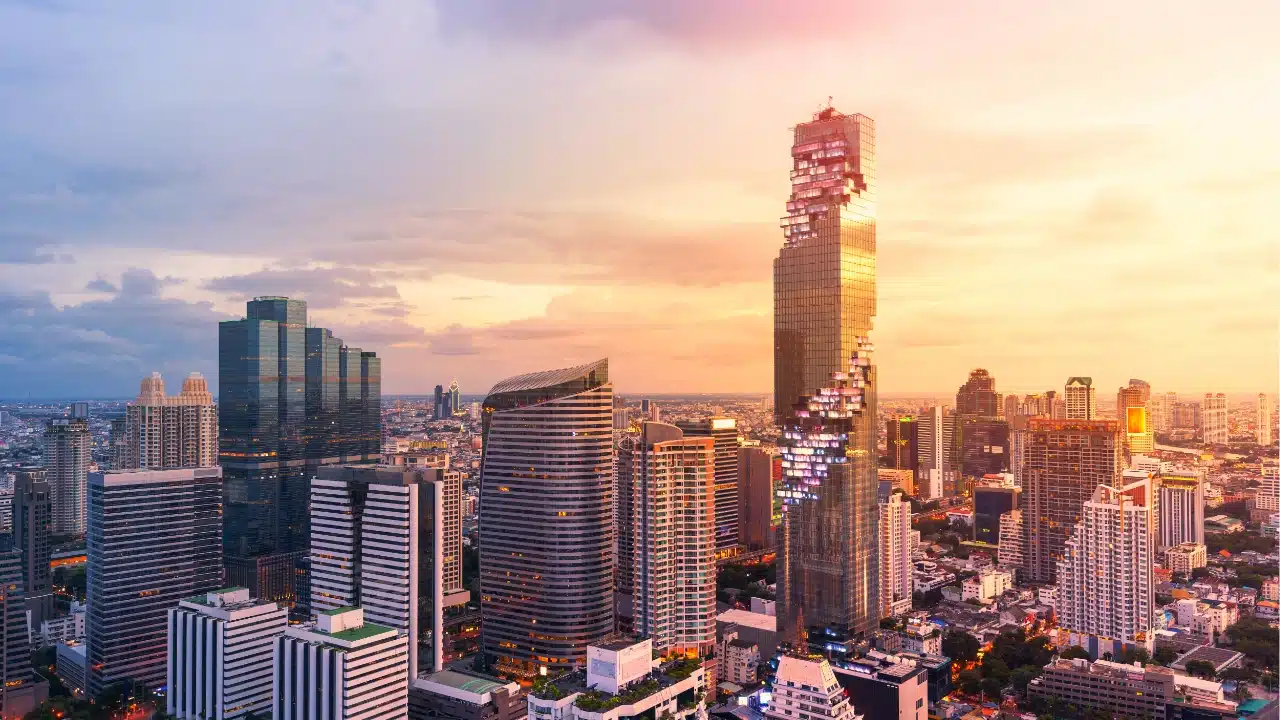
Living in Bangkok as a digital nomad on a budget of US$1,000 (~31,100 Thai baht) a month can be both exciting and challenging. Some digital nomads feel this budget only covers the basics, while others see it as enough for a simple lifestyle in the city.
In this article, we’ll break down the costs of living in Bangkok, from affordable rent and tasty street food to coworking spaces and getting around. We’ll also share useful tips on how to make your money go further, including why travel health insurance like SafetyWing is a smart choice for nomads in Thailand.
*Prices mentioned are within the rate of June 25 to 26.
What can US$1,000 a month get you in Bangkok?
| Jump to Section | description |
|---|---|
| Rent in Bangkok for Digital Nomads | Rent for a studio/1-bedroom near the BTS Green Line costs 12,000 to 13,000 Thai baht (~US$350 to US$400). Cheaper options are in On Nut or Ari, which are still well-connected to public transport. |
| Food Costs for Digital Nomads | Street food costs 50-100 Thai baht (~US$1.50 to US$3) per meal. Mid-range restaurants are about 200 Thai baht (~US$6). Cooking at home costs around 3,500 Thai baht (~US$100) per month for basic groceries. |
| Utilities and Internet Costs | Utilities (electricity & water) cost 1,800 Thai baht (~US$55) per month. A 60 Mbps internet plan costs about 600 Thai baht (~US$18) per month. |
| Coworking Spaces for Digital Nomads | Monthly memberships for coworking spaces range from 5,000 to 6,000 Thai baht (~US$150 to US$180). Budget options like KO Kreate Space start at 3,000 Thai baht (~US$91). Premium spaces like WeWork and JustCo are 4,800 to 7,200 Thai baht (~US$150 to US$220). |
| Transportation Costs | BTS/MRT fares start at 16-17 Thai baht (~US$0.50 to US$0.52). Monthly BTS passes cost about 1,200 Thai baht (~US$35). Ride-hailing services like Grab are also reasonably priced. |
| Leisure and Nightlife Costs | Street drinks cost about 150 Thai baht (~US$4.50). Nightclub entry fees are 250-300 Thai baht (~US$7.60 to US$9). A typical night out costs around 1,500 Thai baht (~US$46). |
| Health Insurance for Digital Nomads | SafetyWing Nomad Insurance starts at US$2 per day (~US$56.28 for 4 weeks), covering emergency medical treatment, hospitalisation, medical evacuation, trip interruptions, lost luggage, and more. The Complete plan costs US$170 per month, covering routine checkups, mental health, and maternity care. |
Rent in Bangkok for digital nomads

For digital nomads thinking of making Bangkok their home, rent will be a big part of the monthly budget. A studio or one-bedroom apartment near the BTS Green Line, which is the city’s main skytrain route, costs around 12,000 to 13,000 Thai baht (roughly between US$350 to US$400) per month. This area is great because it offers easy access to public transport, making it simple and affordable to get around.
To save on rent, many nomads choose to live in neighbourhoods like On Nut or Ari. These areas are still close to the BTS but offer cheaper rent compared to more central locations. This way, you can enjoy the benefits of good transport links without paying the higher prices of downtown areas.
Health insurance is another important factor for digital nomads in Bangkok. Affordable international plans like SafetyWing offer essential coverage, so you can get medical care without worrying about high costs. It’s a good way to stay safe and protected while living abroad.
Calculate your costs below!
Food costs for digital nomads

Bangkok has a wide variety of affordable food options, making it a great place for digital nomads. Street food is the cheapest choice, with meals usually costing between 50 and 100 Thai baht (US$1.50 to US$3). These meals are often made fresh and packed with flavour, giving you a true taste of Thai cuisine without spending too much.
If you prefer sitting down to eat, mid-range restaurants offer meals for around 200 Thai baht (US$6). These places offer more menu options and a comfortable setting, perfect for business lunches or a nice treat.
Cooking at home is another way to save on food. Groceries for simple, healthy meals usually cost about 3,500 Thai baht (roughly over US$100) per month. By using fresh, local ingredients, digital nomads can make nutritious meals while staying within their budget.
Bangkok’s street food markets, such as those in Yaowarat (Chinatown) and Talat Phlu, offer plenty of tasty and affordable meals. By mixing home cooking with the occasional meal out, digital nomads can enjoy Bangkok’s food scene while keeping their expenses low.
Utilities and internet costs for digital nomads
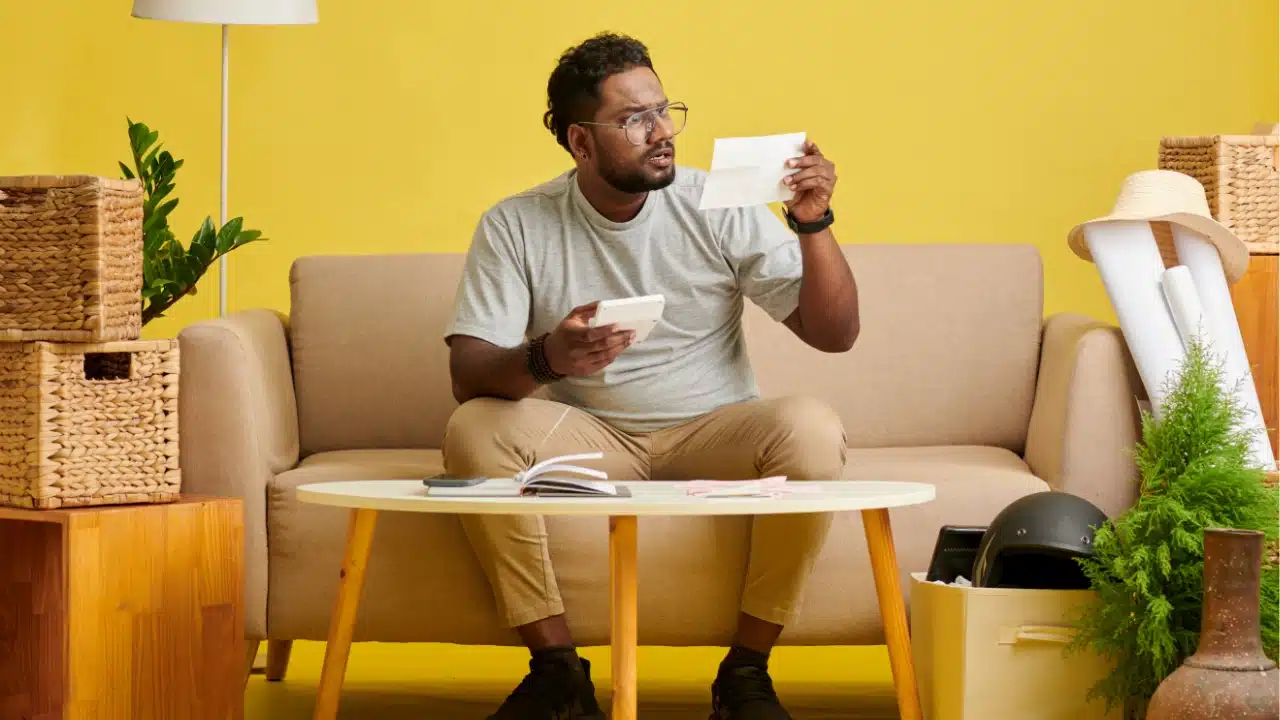
When living as a digital nomad in Bangkok, utilities and internet are key monthly expenses to plan for. On average, electricity and water bills together cost about 1,800 Thai baht (US$55) per month. Electricity costs can change depending on how much you use, especially if you’re running air conditioning in Bangkok’s hot weather. Apartments with good insulation or energy-saving features can help keep these costs lower.
Fast and reliable internet is crucial for remote work, and Bangkok offers affordable options. A standard home internet plan with speeds around 60 Mbps costs about 600 Thai baht (US$18) per month. Major providers like True Online and AIS Fibre offer good packages with fibre-optic connections and great coverage, making sure you stay connected wherever you are.
By choosing energy-efficient apartments and affordable internet plans, digital nomads can keep their utility costs manageable while staying comfortable and connected in Bangkok.
Coworking spaces for digital nomads
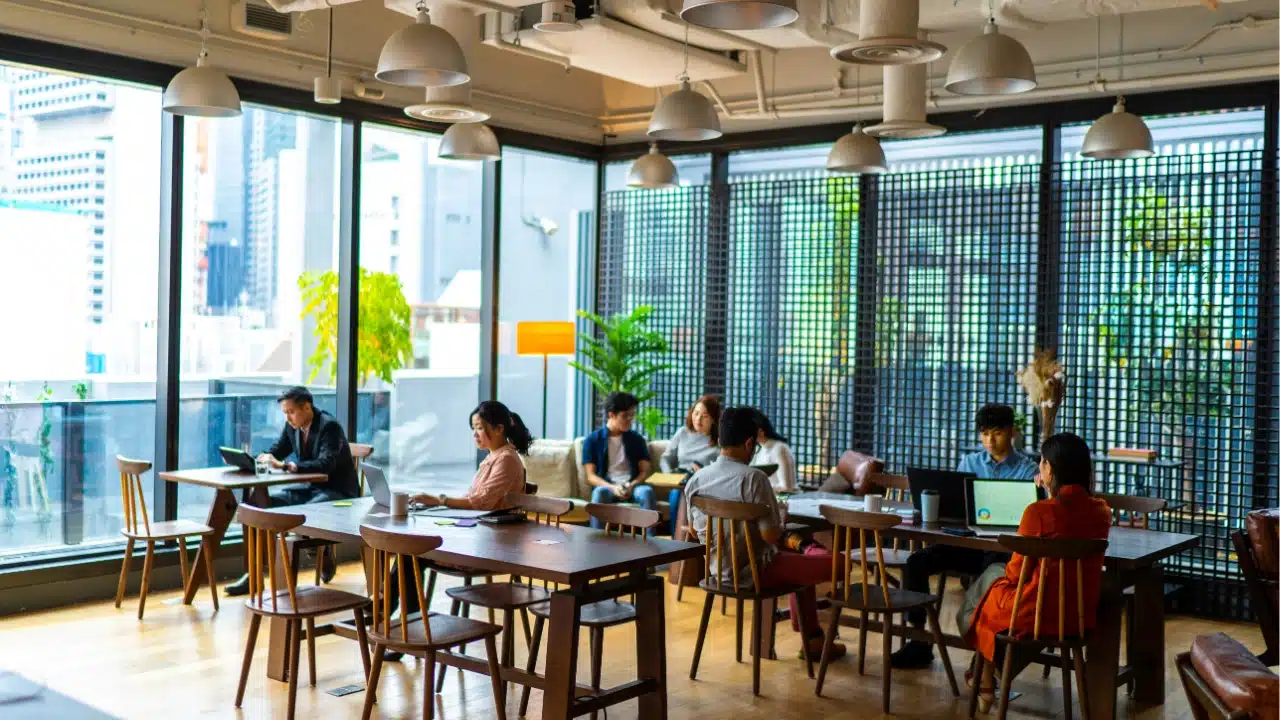
Bangkok offers a wide range of coworking spaces designed for digital nomads, freelancers, and entrepreneurs who need a professional and collaborative place to work. Basic monthly memberships typically range from 5,000 to 6,000 Thai baht (roughly just above US$150 to US$180). These memberships usually include high-speed internet, comfortable workstations, meeting rooms, and access to community events.
Popular coworking hubs like True Digital Park and Urban Office are well-equipped and conveniently located near public transport, making it easy to commute. True Digital Park is especially known for being a hub for tech and startups, offering flexible memberships and networking opportunities.
Some residential buildings also have on-site coworking spaces, which help residents save money on separate workspaces while enjoying the convenience of working close to home.
For budget-friendly options, KO Kreate Space offers memberships starting at just 3,000 Thai baht (about US$91) per month. Meanwhile, premium services like WeWork and JustCo start around 4,800 to 7,200 Thai baht (about US$150 to US$220) per month, depending on location and amenities.
For creative professionals, community-focused spaces like TCDC (Thailand Creative & Design Centre) offer annual memberships for as low as 1,200 Thai baht (just about US$37), making it an affordable choice for creatives and innovators.
Transportation costs for digital nomads
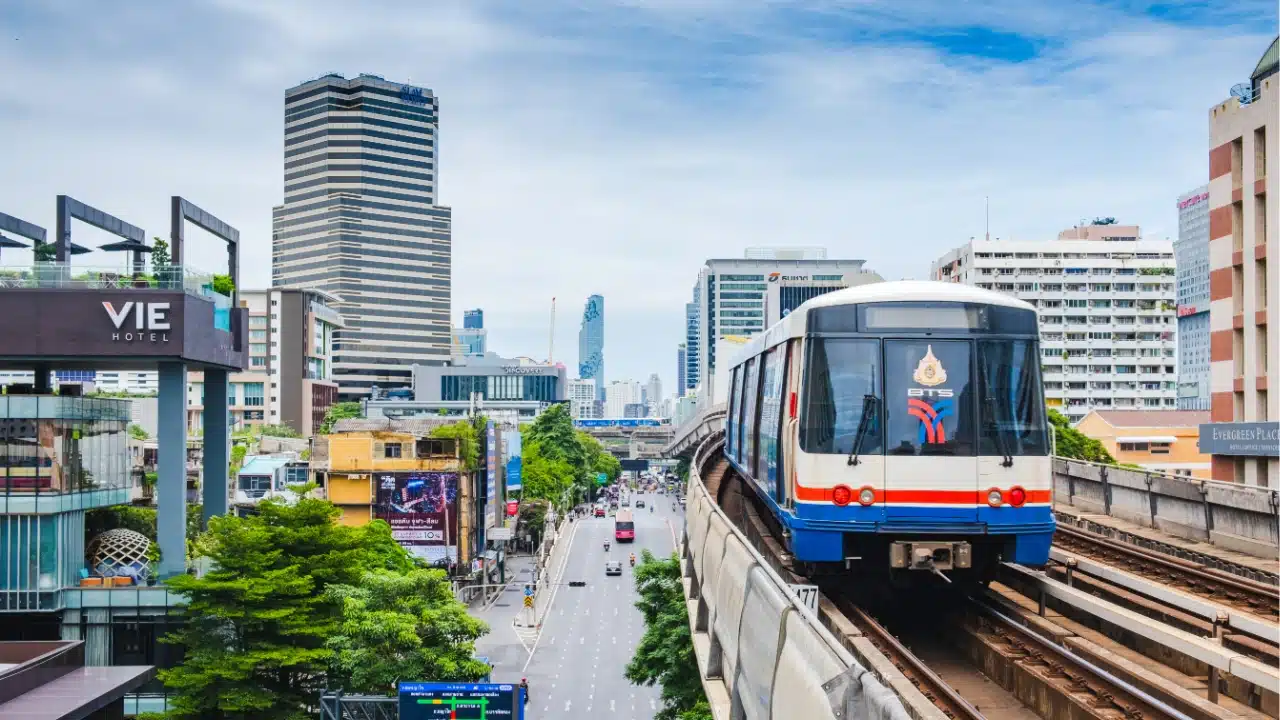
Bangkok has a modern and easy-to-use public transportation system, making it simple and affordable for digital nomads to get around the city. The BTS Skytrain and MRT subway are the main ways to travel, with fares starting at around 16 Thai baht (about US$0.50) for the BTS and 17 Thai baht (about US$0.52) for the MRT, depending on the distance. Both systems are clean, reliable, and air-conditioned, offering a comfortable alternative to Bangkok’s busy streets.
For those who use public transport regularly, a monthly BTS pass costs about 1,200 Thai baht (US$35). This pass gives limited trips within a 30-day period but it is a great way to save money and travel more easily.
In addition to the BTS and MRT, Bangkok has a large bus network and affordable motorcycle taxis for shorter trips or routes that are more flexible. Ride-hailing apps like Grab also provide easy, door-to-door travel at reasonable prices.
Leisure and nightlife costs for digital nomads
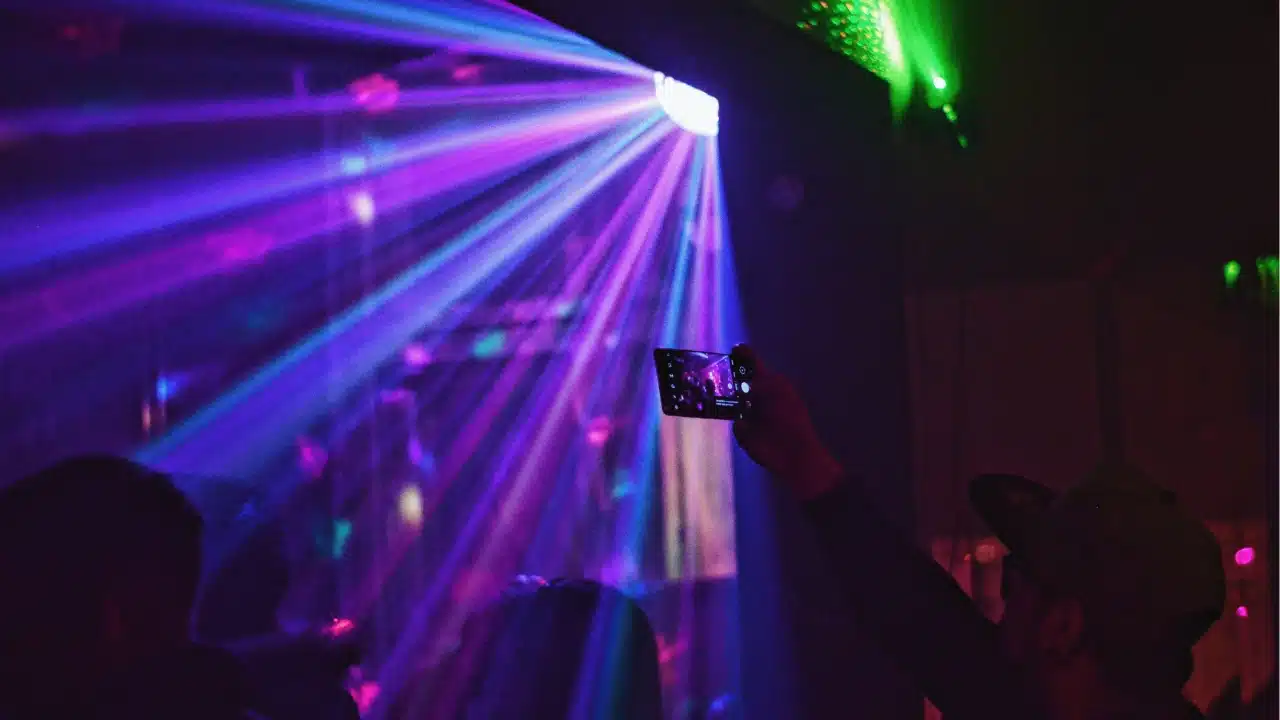
Bangkok is famous for its lively nightlife, offering everything from lively street bars to fancy nightclubs. For digital nomads who want to enjoy the city’s nightlife without overspending, it’s important to know what to expect in terms of costs.
Street drinks, like beers or cocktails from local vendors or casual bars, usually cost around 150 Thai baht (just above US$4.50) each. This makes it easy to grab a drink at a neighbourhood bar or on the go without breaking the bank.
Entry fees for nightclubs are typically between 250 and 300 Thai baht (US$7.60 to US$9), often including one free drink. A typical night out, with drinks and entry fees, can cost around 1,500 Thai baht (US$46), but this can vary depending on where you go and how much you spend.
To keep costs low, many people take advantage of happy hour deals at bars and clubs, which offer drinks at reduced prices. Sticking to street food and drinks instead of more expensive venues is also a great way to manage your budget.
Bangkok’s nightlife areas like Sukhumvit, Thonglor, and Khao San Road offer a variety of options to suit different budgets and preferences. Whether you want to dance at a nightclub, listen to live music, or relax with a cocktail at a rooftop bar, there’s something for everyone.
View this post on Instagram
Health insurance for digital nomads

For digital nomads living abroad, health insurance is an important but often overlooked expense. SafetyWing Nomad Insurance is a flexible and affordable travel medical insurance plan designed especially for nomads and remote workers. Starting at just US$2 per day (around US$56.28 for four weeks for travellers aged 10-39), it offers essential coverage without costing too much.
SafetyWing’s Nomad Insurance Essential plan covers emergency medical treatment, hospitalisation, medical evacuation, trip interruptions, lost luggage, and travel delays in over 180 countries. It also protects in case of evacuation due to political unrest and arrangements for death. The plan automatically renews every 28 days and can be purchased anytime—even after you’ve already started your trip.
One of the main benefits of SafetyWing is its global coverage, giving you the freedom to choose your own doctors and hospitals without being tied to specific networks. This flexibility is great for digital nomads who move around often or prefer English-speaking medical providers.
For those who need more comprehensive care, SafetyWing also offers a Complete plan. This plan includes routine checkups, mental health services, maternity care, and dental and vision coverage. It’s perfect for longer stays and costs more, starting at around US$170 per month with a 12-month commitment.
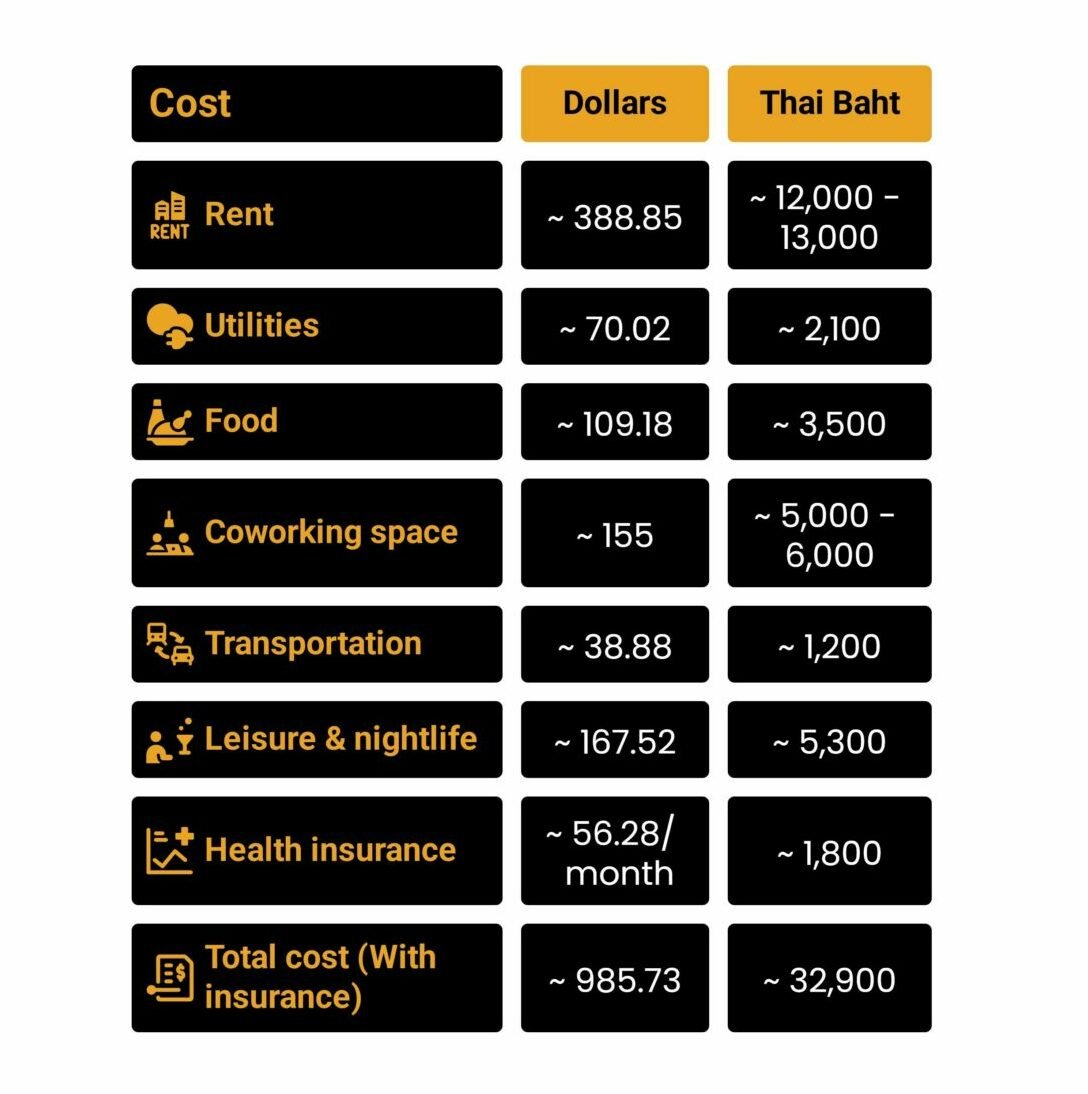
Living in Bangkok as a digital nomad on a budget of US$1,000 (~31,100 Thai baht) is possible with good planning. Rent for a studio or one-bedroom apartment near the BTS Green Line costs around US$350 to US$400. Street food is affordable, costing US$1.50 to US$3 per meal. Utilities and internet cost US$50 to US$70, and coworking spaces range from US$150 to US$180 per month. Public transport, including a BTS pass, costs about US$35, and nightlife can add US$45 to US$50. Health insurance like SafetyWing only costs US$56 per month. With careful budgeting, digital nomads can enjoy life in Bangkok. For more details, check out The real cost of being a digital nomad in Thailand.
Latest Thailand News
Follow The Thaiger on Google News:


























